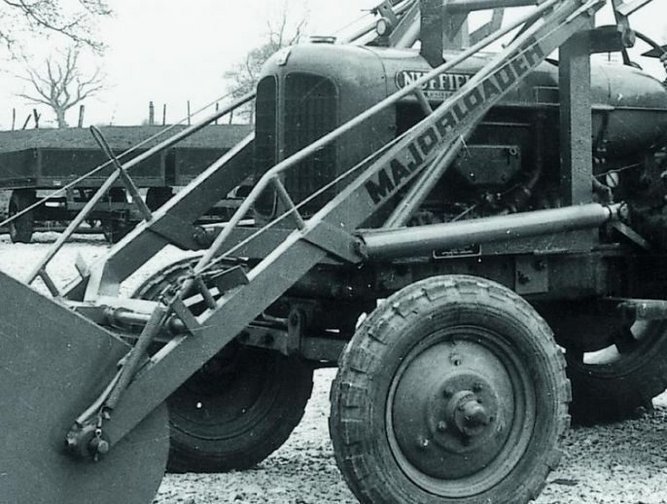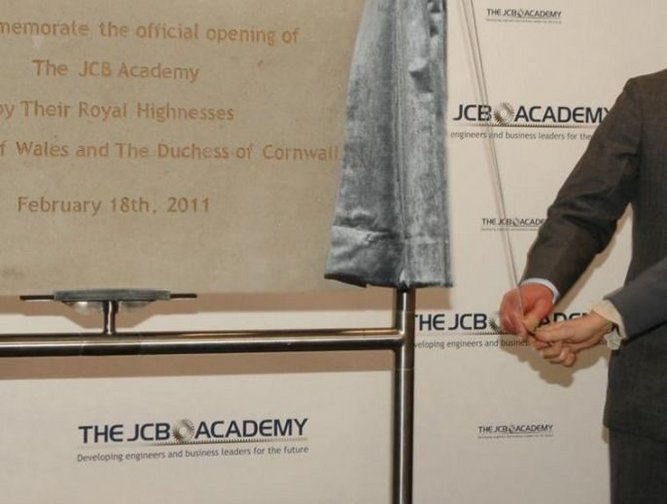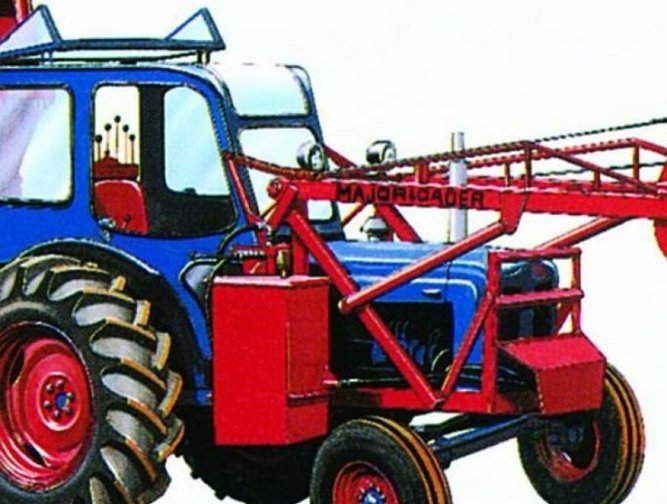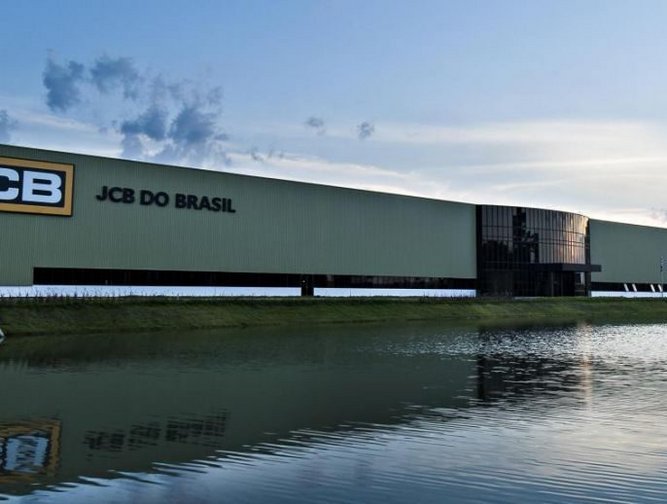
JCB do Brasil
JCB Brazil and the Sorocaba plant
In 1995 the company celebrated its 50th anniversary and the arrival to Brazilian territory, commercializing a variety of products through importers. In 2001, JCB opened its first factory in the city of Sorocaba, in São Paulo state, manufacturing backhoes. In 2012 a new factory opened in the same city and it is now one of the world's most modern when it comes to yellow machines. The new plant is responsible for the production of backhoe loaders, hydraulic excavators, wheel loaders, Loadall and compactor rollers, in addition to having a large post-sales and support warehouse for the distributor network. The factory in Sorocaba still has one of the most advanced electrostatic powder-based painting chambers in the world. "We do at home all key components paintings of our machines, ensuring maximum durability," says Gonçalves.
At the new modern factory, the company invested USD $124 million in a total area of 201.000m², with 37.000m² of built area and production capacity to manufacture 10,000 units a year, currently employing 250 people.
When Jose Luis Gonçalves took over the presidency of JBC of Brazil in 2015, he announced a new wave of investments in the country. “As a family company JCB always think long term. We believe in the potential of the country and we see a huge opportunity growth for machinery market in the future. Our goal is to double in size by 2018. Therefore, we will continue investing in location and nationalization of new machines, consolidating our network of distributors and customer service."
Today the JBC of Brazil has in its portfolio three models of backhoes, two models of hydraulic excavators, two models of wheel loaders, three models of Loadall, five models of mini excavators, five compact loaders, two models of rolls, and machines for cargo transportation. "At the plant we have five production lines today which not only supply the Brazilian market but also all other countries in Latin America as well." To put into prospective JCB’s size, José Luis Gonçalves points out that the company produces more than 300 models of machines offered worldwide. "In Brazil we offer about 40 different models of which 28 are produced in the country and 15 are imported."
Relationship with distributors network
José Luis Gonçalves reveals that JCB's strategic pillar lies on its operational excellence, which ensures the highest product quality. Moreover, the company takes the customer experience to the next level, always seeking to offer JCB patrons the lowest operating costs and best after-sales service, translated by its network of distributors present in all states. According to Gonçalves, distributors are the interface between the company and the final consumer, delivering satisfaction and positive customer relations. "The proximity to the network, the exchange of information and co-management are essential to guarantee greater and better customer satisfaction. This is vital for JCB. We definitely see them not only as partners, but an extension of the relationship with our customers," says Gonçalves.
The president also noted that customers have two main points in their day-to-day, "one is the uptime that is the availability of the machine - that is, the machine is always working and operating properly. The other is the total cost of acquisition, operation, which varies from machine to machine, fuel, maintenance, tires and so on. So we have to acknowledge these variables and be able to perform our job, delivering to our customers maximum availability of the machine, as the distributors network play a key role in scheduling due maintenance of all machines, and we focus on security and an operating cost that is as competitive and as low as possible so that the client has the best return on their business. "
José Luis Gonçalves also points out that the relationship with the network is a symbiosis. He states that they are not two separate entities, but rather a set from the factory to the network where the ideal is to be always close to each other, maintaining a continuous dialogue to guarantee customer satisfaction. Since 2014, the company has been undergoing a process of consolidation and strengthening of the network. Important changes took place in different areas of Brazil, bringing in companies that are of great commercial capacity, large financial health, all in full alignment with the values and traditions of JCB in Brazil. This enables the company to keep economic groups that have working in more than 60 points in Brazil, in all states of the country. The executive also added: "The network is a key part of our business because it takes care of JCB’s most valuable asset, which are our customers."
Social and environmental responsibility
The social projects developed by JCB Brazil are linked to the Lady Bamford Foundation, a worldwide project sponsored by JCB, which in Brazil includes support to the ‘Tomorrow Planters’ childcare facility, in addition to the IESA (Institute of Social Environmental Education) which is based on an ecological soap factory that turns part of its sales revenue to maintaining the social project.
Learn more about the social projects of JCB:
IESA: On each machine manufactured by JCB in Sorocaba, a soap kit manufactured by IESA, is sent accompanied by a letter, which aim to spread the word about this work to distributors and customers of the brand.
COESO: Besides working with the children at its daycare, JCB also supports COESO on a project with the mothers of these children, providing workshops to manufacture handbags out of recycled materials and cooking classes, like the bread workshop.
RESSIG Project (Reframing waste) is aimed at reusing materials, especially from industrial origin, as raw material in the artists and craftsmen production processes as well as students projects from schools in located the city of Sorocaba and around the region.
JCB, as the project supporter, provides monthly donation of materials (which would otherwise be simply disposed of) to RESSIG. Among the donated materials are: cardboard, plastic bags, bubble wrap, foam blocks, styrofoam plates, nylon ribbons, among others.
When it comes to the environmental issue, JCB’s plant in Sorocaba stands out for:
- Solar Heating: all hot water used in the factory is obtained by solar energy.
- Natural lighting: the production areas all have partly with natural light through transparent domus, enabling work to be done with only part of artificial lights being on.
- Rain harvest system, prepared to the reuse the water in bathrooms and lots clean up.
- ACL (Free Contracting Environment): all electricity JCB, staring in January 2016, now come from subsidized sources (renewable), directly from CEMIG (largest supplier in this segment).
- ETES (Effluents Sanitary Treatment Plant): JCB treats sewage, returning it clean




